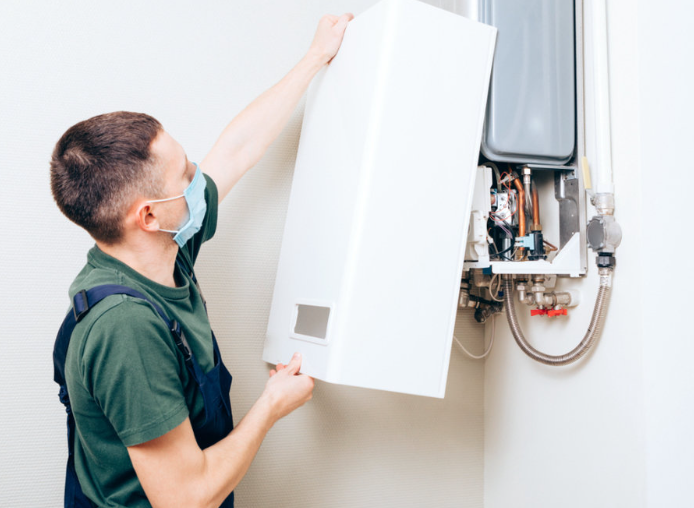-
Ροή Δημοσιεύσεων
- ΑΝΑΚΆΛΥΨΕ
-
Σελίδες
-
Blogs
-
Courses
-
Ταινίες
How Humidity Control Affects Indoor Comfort

Indoor comfort is about more than just adjusting the thermostat. One often-overlooked factor that plays a significant role in how comfortable your home feels is humidity. While Heating Services focus on keeping homes warm during colder months, the balance of moisture in the air is equally crucial to maintaining a pleasant and healthy environment. Too much or too little humidity can affect not only your comfort but also your health, furniture, and even your home’s structure.
Understanding Humidity and Its Role in Comfort
Humidity refers to the amount of water vapor in the air. The ideal indoor humidity level typically ranges from 30% to 50%. Within this range, most people feel comfortable, and the home environment remains stable. If humidity levels fall below this range, the air becomes too dry, while higher levels create an overly damp atmosphere. Both extremes can negatively impact comfort and health.
Low Humidity: Why Dry Air Can Be Problematic
During winter, when heating systems run frequently, indoor air tends to dry out. This low humidity level can cause a series of issues:
Health Effects of Dry Air
-
Dry skin and lips: A lack of moisture in the air can cause skin irritation, flakiness, and chapped lips.
-
Respiratory discomfort: Dry air can irritate nasal passages, making it harder to breathe comfortably. It can also worsen conditions such as asthma or allergies.
-
Increased illness risk: Viruses like the flu spread more easily in dry air, which can make winter sickness more common.
Impact on Home and Belongings
-
Wood damage: Furniture, floors, and instruments made of wood can crack or warp due to dryness.
-
Static electricity: Low humidity increases static shocks, which can be frustrating and damaging to electronics.
High Humidity: Why Excess Moisture Creates Discomfort
On the other hand, too much humidity can also create problems in the home.
Health Concerns with Excess Moisture
-
Allergy triggers: High humidity promotes the growth of mold, dust mites, and bacteria, leading to allergies or respiratory issues.
-
Uncomfortable heat: When the air is too moist, the body struggles to cool itself through sweat, making temperatures feel hotter than they actually are.
Effects on the Home
-
Mold and mildew growth: High humidity can cause mold to spread on walls, ceilings, and fabrics.
-
Damage to structures and belongings: Moisture can lead to peeling paint, warped wood, and musty odors.
Achieving the Right Balance
The key to maximizing indoor comfort lies in achieving balanced humidity. This is where modern climate control systems come into play.
Humidifiers for Dry Environments
Adding a humidifier can help maintain appropriate moisture levels during the heating season. Whole-home humidifiers integrate with existing HVAC systems to provide consistent comfort.
Dehumidifiers for Damp Environments
In areas with high moisture, dehumidifiers work to pull excess humidity from the air, making the home feel cooler and preventing mold growth.
Smart Thermostats and Monitors
Today’s smart home devices often come equipped with humidity sensors. These tools allow homeowners to track and control indoor conditions more precisely.
Benefits of Proper Humidity Control
Balancing humidity brings a wide range of benefits that go beyond just feeling comfortable.
Enhanced Health and Wellness
With the right humidity levels, breathing becomes easier, skin stays healthier, and risks of illness are reduced.
Improved Energy Efficiency
When humidity is properly controlled, homes feel warmer in winter and cooler in summer, reducing the need to overuse heating or cooling systems. This translates into lower utility bills.
Longer Lifespan for Home Materials
From hardwood floors to furniture and electronics, proper moisture levels help extend the life of household items.
Tips for Homeowners to Maintain Ideal Humidity
-
Use hygrometers: Simple tools that measure humidity can help monitor indoor levels.
-
Seal air leaks: Cracks and gaps around windows or doors can let in outdoor air, disrupting indoor humidity balance.
-
Maintain HVAC systems: Regular cleaning and maintenance ensure heating and cooling systems operate efficiently.
-
Add indoor plants: Certain plants can help naturally regulate humidity levels in the home.
The Role of Professional Services
While some homeowners manage humidity with portable devices, professional help ensures lasting comfort. HVAC specialists can evaluate a home’s air quality, recommend whole-home humidifiers or dehumidifiers, and provide ongoing maintenance. Pairing humidity solutions with efficient heating and cooling systems ensures a well-balanced, healthy indoor environment all year long.
Conclusion
Humidity control is a vital yet often overlooked factor in indoor comfort. Whether air is too dry in the winter or too moist during the summer, both extremes can create problems for health, home, and overall well-being. By monitoring and adjusting humidity levels, homeowners can achieve a balance that enhances comfort, protects the home, and improves energy efficiency. With the right combination of technology, smart habits, and professional guidance, it’s possible to create an indoor environment that truly feels just right in every season.
- Art
- Causes
- Crafts
- Dance
- Drinks
- Film
- Fitness
- Food
- Παιχνίδια
- Gardening
- Health
- Κεντρική Σελίδα
- Literature
- Music
- Networking
- άλλο
- Party
- Religion
- Shopping
- Sports
- Theater
- Wellness


